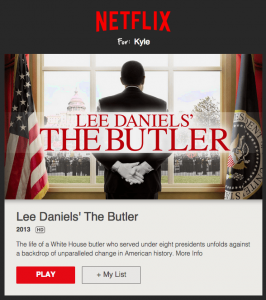Typically, the purpose of a resume is to measure the value of a candidate’s experience and accomplishments, and how this will translate to on-the-job performance.
However, research shows resumes are among the least accurate talent assessment tools used in the pre-hire process. Resumes do little to address three incredibly important aspects: whether a person can actually do the job, whether the person wants the job, and whether he or she will fit into the company’s culture.
In fact, as Dr. John Sullivan points out in his ERE piece, there are a number of problems that arise from using resumes as a means to identify employees
According to Dr. Sullivan, resumes are, at best, self-reported descriptions of historical events that oftentimes omit negative information.
Typically, there’s no scoring format for resumes, so the way each individual recruiter or hiring manager assesses a resume will be different. Depending on who’s doing the resume-reading and how long they’re spending with each applicant’s credentials, valuable talent could be getting passed up due to the lack of a standardized talent selection process.
Additionally, resumes do not include forecasts of projections on how candidates will act differently in your specific job and working environment, making it difficult to truly determine whether or not he or she will be able to handle the challenges of the role.
The Truth Is: Many of Your Candidates List Lies on Resumes
The tricky thing about using resumes as the primary drivers of your talent assessment strategy is that they describe what a person has done, rather than who they are. While not every candidate lists blatant lies on their resume, research shows a majority of your applicants will likely embellish their skills or experience.
A recent CareerBuilder survey of over 2,500 hiring managers illustrates the problem with leaning too much on resumes for information about a candidate’s work skills, knowledge, and abilities.
The survey revealed 56% of employers had caught a lie on a resume, and the facts candidates most frequently fabricated were around true nature of their skills, past job titles, academic achievements, past responsibilities, and dates of employment.
Additionally, the survey found there are certain industries that catch lies more frequently on resumes:
- Financial Services – 73%
- Leisure and Hospitality – 71%
- Information Technology – 63%
- Health Care (More than 50 employees) – 63%
- Retail – 59%
In environments where candidates must be able to pick up the ins and outs of positions quickly with minimal guidance – like sales jobs, support jobs, and contact centers – selecting a candidate is just like any other major decision in this day and age. You’ll want to do your research and vet the choice using data.
Hiring Top Talent by Supplementing Resumes with Hard Data
Talent assessment should be focused on capturing behavioral data about the candidate’s work skills, knowledge, and personality. A paper snapshot can’t tell you how a candidate will handle an angry customer with an issue specific to your product or service, but validated talent assessment tools can. FurstPerson research shows pre-hire assessments can increase overall performance levels of hires by as much as 21% after implementation.
Because resumes are so often fudged, leading organizations as well as business leaders like Warren Buffet are now incorporating behavioral data into their pre-employment selection processes to gain a better understanding of their candidates. And in a business climate increasingly dominated by data-based decision-making, using proven selection methods could mean the difference between seeing your company grow or get left in the dust of your competitors.
While a resume acts as a good jumping-off point, pre-hire assessments enable your candidates to prove they have the skills listed while providing quantifiable data to the hiring teams.
Paired with a strategic talent acquisition strategy, data gathered from tools like job simulations and personality assessments allows hiring managers to discover what their candidates are truly capable of. Learn more by downloading your free copy of the whitepaper below.
Business & Finance Articles on Business 2 Community(41)








